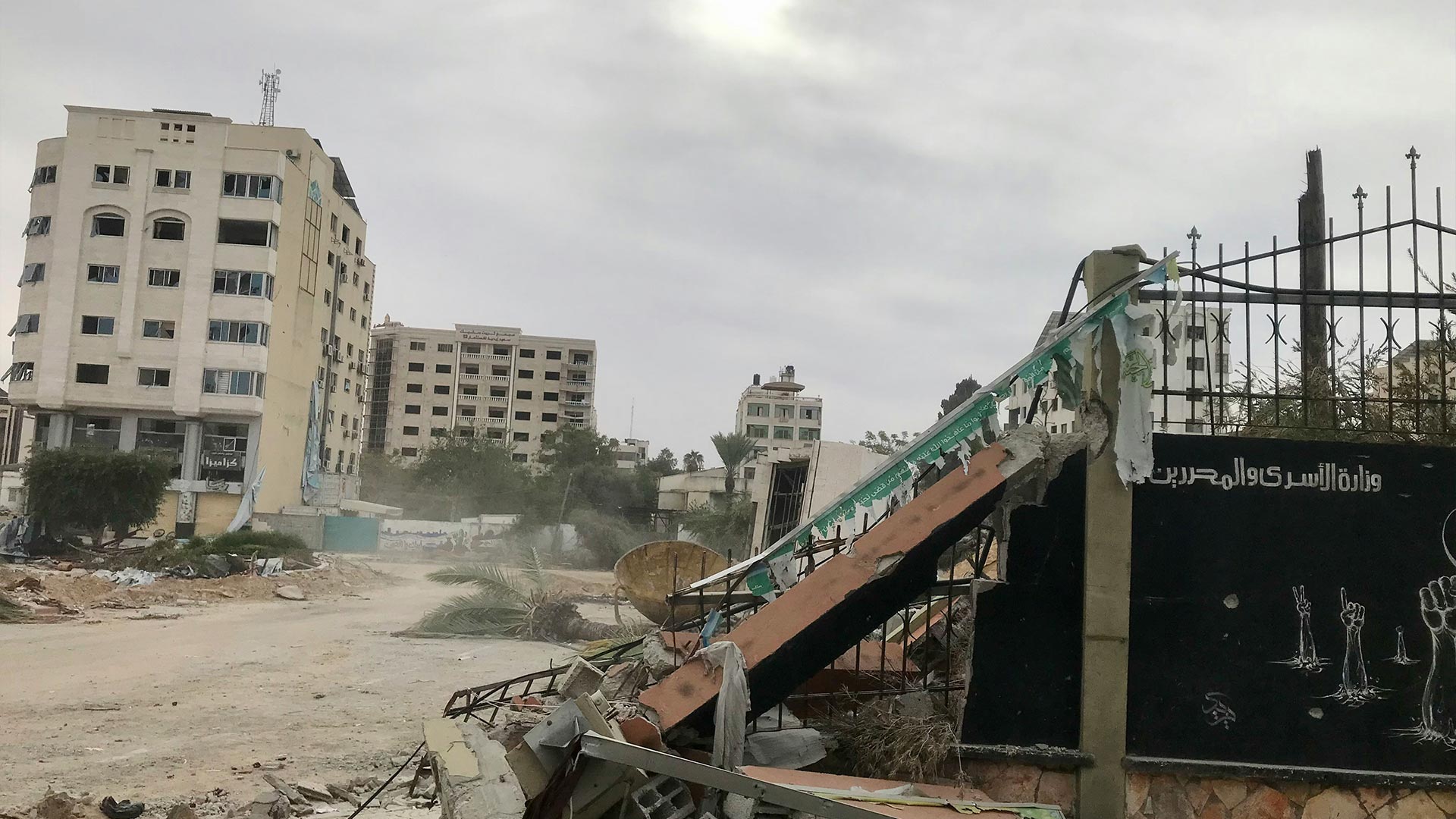-
Middle East Policy has been one of the world’s most cited publications on the region since its inception in 1982, and our Breaking Analysis series makes high-quality, diverse analysis available to a broader audience.
-
Middle East Policy has been one of the world’s most cited publications on the region since its inception in 1982, and our Breaking Analysis series makes high-quality, diverse analysis available to a broader audience.

Policy Brief Program
November 14, 2023
On Thursday, November 9, it was announced that Israel had agreed to requests from the Biden administration for daily four-hour “humanitarian pauses” in fighting in Gaza. The pauses will take place in a different neighborhood in northern Gaza each day, and are intended to allow Palestinians to evacuate from northern to southern Gaza, and facilitate the delivery of aid to civilians.
Regional sources report on the pauses:
Prior to Israel’s agreement to the humanitarian pauses, a draft resolution in the U.N. calling for a humanitarian pause in Gaza was vetoed by the United States, as explained by Egypt Independent. Justifying the veto, U.S. Ambassador to the U.N. Linda Thomas-Greenfield “explained that the US wanted more time to let American on-the-ground diplomacy ‘play out.’” Thomas-Greenfield is also said to have “criticized the text for failing to mention Israel’s right to self-defense.”
Biden confirmed earlier last week that “he asked Israeli Prime Minister Benjamin Netanyahu for a pause in fighting in Gaza during a call on” November 6, per Haaretz. The two leaders had “discussed the potential for ‘tactical pauses’ in fighting in Gaza for humanitarian reasons and possible hostage releases during their conversation.”
There exist criticisms that these humanitarian pauses do not go far enough. For example, Al-Jazeera quotes Sami Hamdi, the managing director of International Interest, as saying that the pause is “designed to be a vehicle through which the US can continue to support Israel’s push to ethnically-cleanse the northern part of Gaza, but also be able to reframe and present that support to the raging global public as ‘humanitarian.’” Also of note are remarks from Abdel Hamid Siyam, professor of political science and Middle East studies at Rutgers University, who argues that Gaza needs a “ceasefire so that humanitarian aid can come in uninterrupted, that foreigners can leave the country, and maybe negotiations can take place.”
The European Commissioner for Crisis Management Janez Lenarcic specified the need for “‘meaningful’ pauses in the fighting in Gaza and urgent deliveries of fuel to keep hospitals working in the territory,” Al-Arabiya reported. Beyond agreeing to these pauses, Lenarcic asserted: “It is urgent to define and respect humanitarian pauses.”
The Organization of Islamic Cooperation (OIC) criticized the international community, and the EU in particular, for not exerting pressure on Israel for a full cease-fire. On Monday, “the ambassadors of the 57-nation bloc read a statement calling upon the EU to undertake all necessary efforts to prompt an immediate and comprehensive cease-fire and bring an end to Israeli aggression against Gaza,” at a news conference in Brussels, as explained by Anadolu Agency. The OIC’s statement “emphasized the crucial role of the EU in holding Israel accountable for the war crimes committed in Gaza, underscoring that the Israeli attacks on Gaza cannot be justified as self-defense.”
Tehran Times reported on Iran’s position in participating in the Arab League-OIC summit, saying that Iranian President Ebrahim Raisi pushed for “stopping the killing and genocide in Gaza, lifting the human blockade completely, and cutting off any political and economic relations with the Zionist regime by the Islamic countries.”
Speaking on the developments, Philippe Lazzarini, head of the U.N. Relief and Works Agency (UNRWA), told the U.N. Security Council that “an immediate humanitarian cease-fire has become a matter of life-and-death for millions,” as quoted by Daily Sabah. The paper further editorializes that “declaring a cease-fire is a strategic, political and moral imperative that offers a chance to prevent an all-out conflagration in the region and beyond – something that would ultimately run contrary to U.S. interests.”
(Image: apaimages)